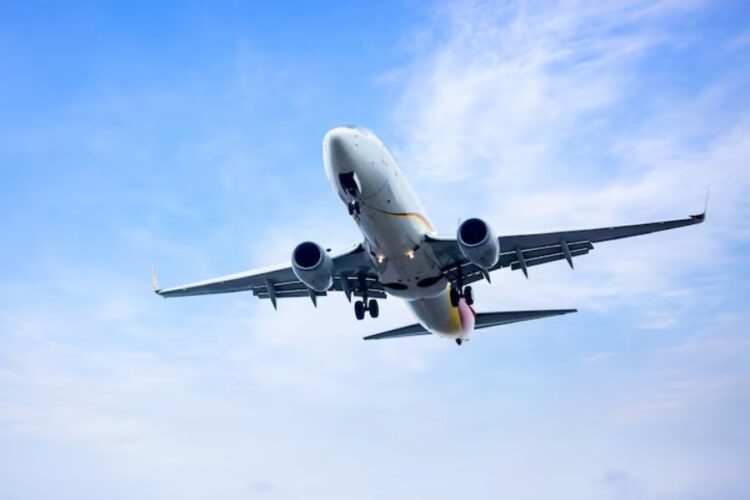It is common for many people to travel by air. However, news reports about injuries and accidents on flights might make you wonder if you have legal recourse when you’re affected by an airline incident.
There are many circumstances in which you may be eligible to file a lawsuit against an airline. For example, you might be injured in an accident, have your luggage damaged, or experience an in-flight sexual assault. All of these and more could lead to you having a legal claim on your hands.
Below, we go more into detail about which situations will likely give you grounds to sue an airline.
You Were Injured
If you were injured on a flight, you may be able to sue the airline if your injury was the result of the airline’s negligence. This means you were injured because the airline failed to take reasonable care in order to prevent you from being harmed.
You need to be able to prove the following to prove that you were injured by an airline’s negligence:
- Duty: The airline possessed a duty to prevent passengers from being foreseeably harmed.
- Breach: The airline breached this duty, possibly by not following safety procedures which are reasonable.
- Causation: Your injury was caused by the airline breaching its duty.
- Damages: You incurred medical expenses, pain and suffering due to your injury.
An example would be a pilot missing a runway and making a bumpy landing in a parking lot, not due to mechanical issues or bad weather, but because he was drinking and the airline’s carelessness allowed him to fly the plane. You’re injured because the rough landing causes luggage to fall on you from above.
Airlines have a duty to make sure you’re transported safely. It is a breach of said duty to let a pilot fly while drunk, since this jeopardizes the safety of passengers.
Airlines are responsible for multiple conditions which can injure passengers. These include:
Dangerous Conditions in the Cabin
Airlines, according to the FAA, are responsible for their cabins being safe. Dangers in cabins might include:
- Defective overhead bins
- Sharp objects
- Defective seat belts
Cabins may be unsafe due to airlines failing to regularly check them for hazards, or failing to replace equipment which is defective.
Turbulence
Turbulence is expected on flights. However, turbulence can lead to negligence when:
- Pilots fail to take measures to avoid it
- Pilots don’t warn everyone on the flight about upcoming turbulence
- You’re injured by turbulence because of defective equipment like seats or seat belts
Avoidable turbulence can lead to injuries like brain injuries, spinal cord injuries or whiplash.
Poor Responses to Medical Emergencies
Should you suffer a medical emergency mid-flight and the crew’s response is inappropriate or slow, you might be able to hold the airline liable.
Food Cart Mishaps
Airlines may be responsible for injuries that result from the mismanagement of the drink and food cart. Airlines are typically responsible for the actions of their employees. If an employee rolls over your toes or strikes your elbows with the food cart, you may be eligible for compensation from the airline.
Collisions
You may qualify for compensation if you’re injured due to the plane colliding with something due to the negligence of the pilot.
You Were Sexually Assaulted
You may be able to file a sexual abuse lawsuit if you were sexually assaulted while on a flight.
You can hold an airline liable for your sexual assault if you can prove that the assault happened because of airline policies or the airline’s lack of protocols or policies regarding the reporting of sexual assault.
It is common for lawsuits to be filed against airlines which allege things like:
- Airlines lacking adequate policies to prevent sexual assault
- Airlines failing to report instances of sexual assault to authorities
- Airlines serving passengers too much alcohol, leading to the passengers sexually assaulting others while drunk
Your Luggage Got Lost or Damaged
It’s unfortunately quite common for luggage to get damaged or lost. According to the Bureau of Transportation Statistics, in 2021, 5.1 of each 1,000 bags which were checked got mishandled.
If you’ve had a bag mishandled, you may have wondered if you had compensation available to you. This depends on the documentation or contract of carriage which goes with the purchase of your ticket.
Contracts of carriage typically cover things like:
- Airline boarding policies
- Flight cancellation rules
- Baggage damage and loss policies
- Compensation policies regarding denied boarding
Airlines might slightly vary in their details and wording regarding these things. However, they need to follow federal guidelines which govern compensation as they relate to baggage.
Airlines are required to pay as much as $3,800 per passenger regarding damaged, lost or delayed baggage when it comes to domestic flights. Even when damaged/lost items’ values exceed that amount, airlines don’t need to pay any more.
If airlines fail to provide compensation you’re entitled to, you can file a lawsuit in small claims court. There’s a limit to how much you can receive in small claims court, though.
Some of the amount lost may be covered by renter’s insurance, homeowner’s insurance or credit cards.
A Contract Was Breached
Contract breaches have four separate elements:
- Contract: An agreement needs to exist between passengers and the airline. A contract of carriage from an airline is a contract between the airline and you which sets out both parties’ obligations and rights.
- Performance: Passengers must show they complied with contracts in good faith.
- Breach: Airlines need to have violated contracts by not fulfilling obligations.
- Damages: You must be harmed by the airline breaching the contract.
For example, say you’ve paid for an expensive business class ticket. However, the airline ends up forcing you to sit in an economy class seat, refusing to compensate you.
Here, you can argue that the contract between you and the airline requires that you are provided with an appropriate ticket for your payment. Since you paid for a business class seat, this shows you complied with your contract in good faith.
However, the airline refusing to place you in the part of the plane you paid to sit in shows that the airline didn’t meet its end of the contract. Since you suffered damage in the form of wasted money, you might have a valid breach of contract suit that you can file against the airline.










